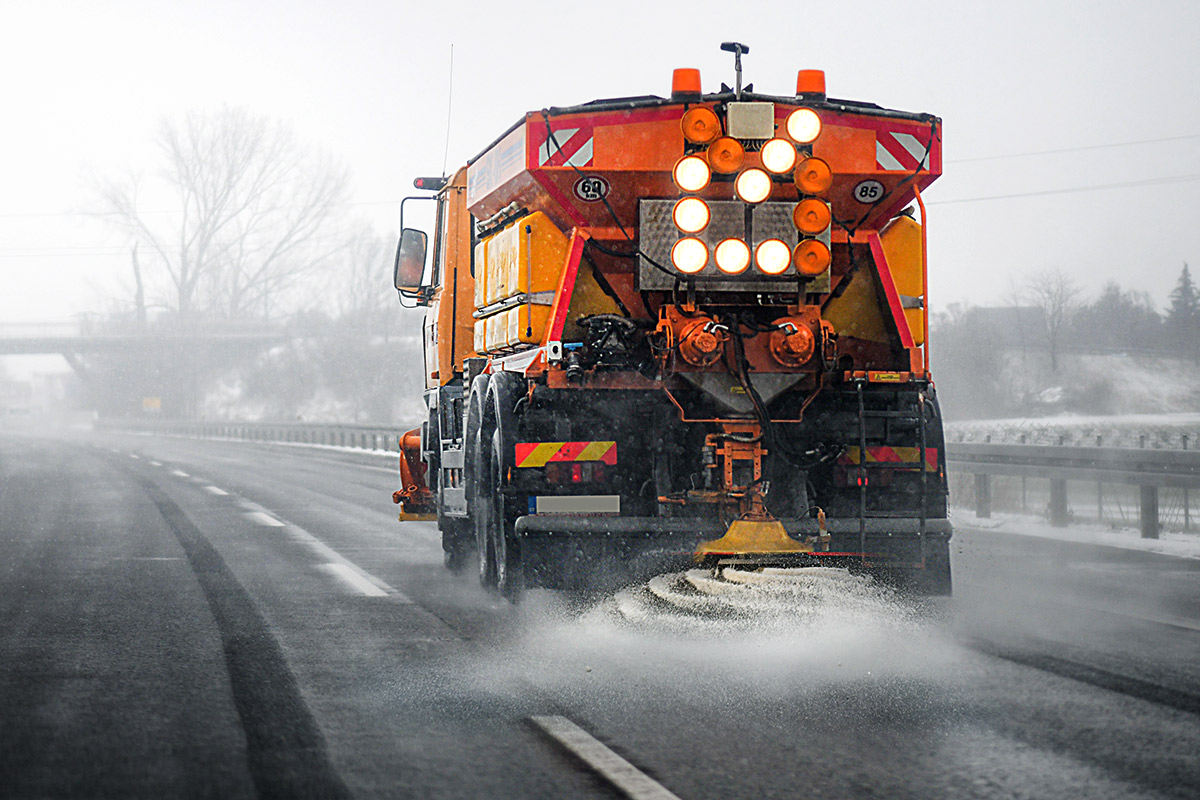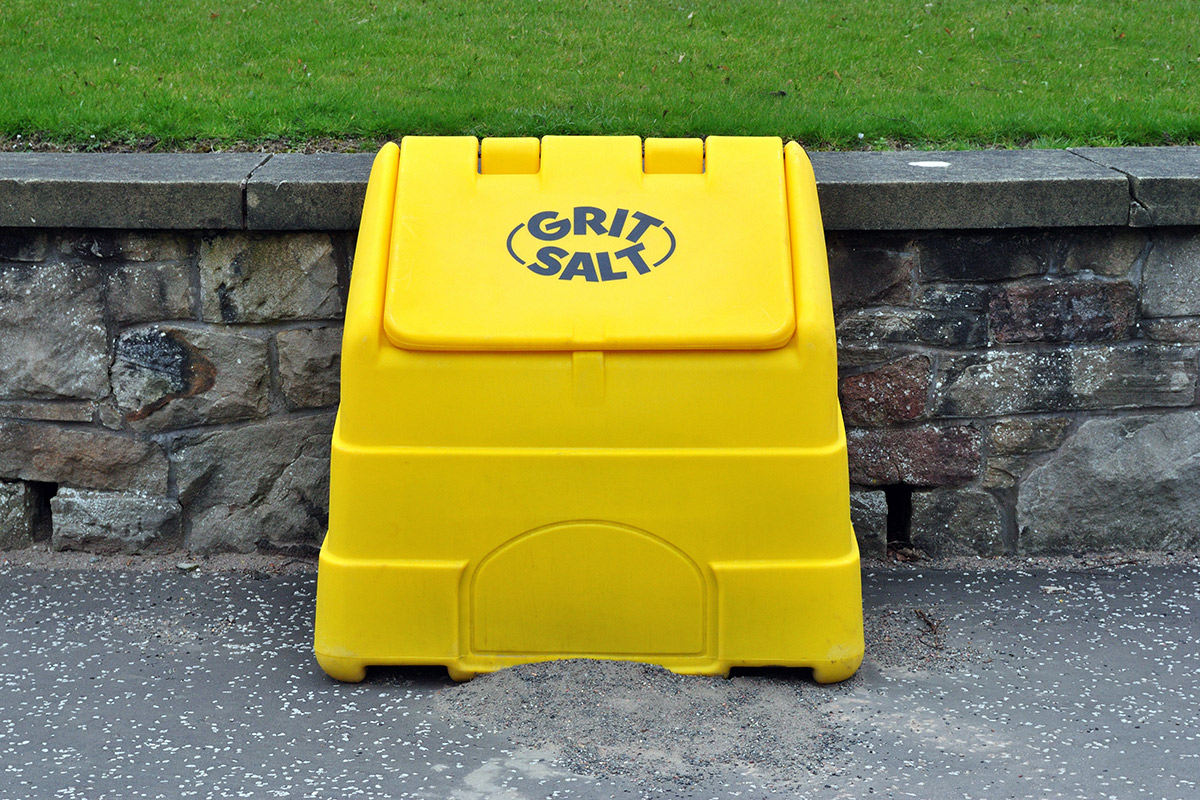Best Practices
Road De-Icing and the Law
The Railways and Transport Safety Act that came into force in 2003 makes it clear that Local Authorities have a legal responsibility to ensure, so far as is reasonably practicable, that safe passage along a highway is not endangered by snow and ice. But what does this actually mean? And what should Local Authorities be doing?
The following information will help to answer those questions:
- Every Local Authority has budgetary constraints and it is not possible or practical to treat every road and every footpath but it is necessary to be able to show that reasonable consideration has been given to which roads and pathways are gritted. To this end a proper audit of road use should be carried out.
- Winter maintenance policies need to be consistent with other policies such as Safe Routes to School.
- There needs to be more dialogue and consistency between individual Authorities and between Authorities and private contractors so that the public doesn’t experience disparities in the condition of roads as they travel across boundaries.
- Winter maintenance policies need to be published so that it is easy for the public to see what procedures are in place for the area in which they live, travel and work.
- Actively encourage the public to play their part in safer winter roads by providing information and advice on winter driving and the particular travelling issues of importance in your area.

Winter Maintenance Policies must be Consistent
Research conducted by the Salt Association reveals that there are huge differences across the UK in the approaches taken by Local Authorities to winter maintenance, the priority given to it and the extent to which policies are published on Local Authority websites. Some websites contain comprehensive information on what is gritted, why, when and how and at the other end of the scale there are just contact details for relevant departments.
Footpaths
Pavements and cycleways maintainable at public expense fall within the definition of ‘Highway’ under the Act. But policies vary hugely as shown by this random selection of statements from individual Local Authority websites;
There are three different approaches: only treating roads with no gritting of footpath or cycleways; taking a reactive approach by treating selective paths once it has snowed; ensuring pavements are considered as carefully as roads when planning for winter. Clearly most Authorities would state that they do the best possible with limited budgets but in the light of the 2003 Act it would be unwise to disregard pavements completely.
Clear, Consistent, Comprehensive
Winter maintenance should not be disregarded as a minor concern. Research has shown that for every £1 expended on winter road maintenance, around £8 is saved in the economy as a whole. And the public believe it to be hugely important to the quality of their lives; a MORI poll survey indicated that over half the population would be prepared to pay more in their council tax to have their local routes salted. The next step?
- Audit current winter maintenance policies – are they adequate? Efficient? Effective?
- Develop a comprehensive winter maintenance programme that is appropriate to the local area, the geographical location and demographics.
- Ensure that the winter plan is consistent with other policies.
- Publish the winter plan in clear, accessible formats.
Defining Winter Maintenance Policy
Different Local Authorities have different priorities based on their local infrastructure, weather conditions and centres of population.
However the Salt Association believe that national standards or frameworks of practice and policy should be developed to ensure consistency across the road network. Items for consideration might include the following:
- Clearly prioritised gritting routes, established against a national assessment framework which reflects:
- Traffic-flow
- Time-to-treatment
- Recommended spreading rates
- Key routes
- Access for essential services
- Consistency with neighbouring authorities.
- Widespread publication of those routes in local newspapers, local radio, television, leaflets and web sites.
- Agreed schedule and technical specification for gritter maintenance and spreader calibration.
- Structured programme of operator training.
- Agreed performance measurements for sub-contractors and methods of monitoring them.
- Establishing sensible salting standards to minimise environmental damage.
- A campaign to encourage road users to play their part in keeping winter roads safer – a ‘Drivers Contract.
RoSPA Supports the Use of ‘Objective Criteria’
Like the Salt Association, RoSPA, the Royal Society for the Prevention of Accidents, fully supports the use of salt on road surfaces as part of a pro-active and re-active winter maintenance programme if and when the temperature drops, or is expected to drop, below freezing point.
They too recognise that it may prove impossible for all Local Authorities with highway responsibilities to ensure all roads are salted on every occasion.
To overcome this they recommend the adoption of “objective criteria” to ensure that critical routes are dealt with as a priority, and so some subordinate roads may not be covered.

Codes of Practice
There is a large amount of published advice on the use of salt in highways winter maintenance. Some of this is included in the list below. Although there are no national standards, we recommend that research should include the following:
| Group | Guidance Notes on Winter Maintenance |
|---|---|
| Highways Agency | Trunk Road Maintenance Manual, Vol 2 – Routine & Winter Maintenance Code |
| Highways Agency | Well Maintained Highways, A Code of Practice for Highways Maintenance Management |
| Scottish Executive | Code of Practice – Winter Maintenance for Trunk Roads |
| Association of Metropolitan Authorities | Northern Ireland Highway Maintenance – A code of Good Practice, Winter Maintenance Supplement |
| Published by Institution of Highways & Transportation | Delivering Best Value in Highways Maintenance |
| The Institution of Civil Engineers | ICE Design & Practice guide to Highways Winter Maintenance |
| National Winter Service Research Group | www.nwsrg.org |
